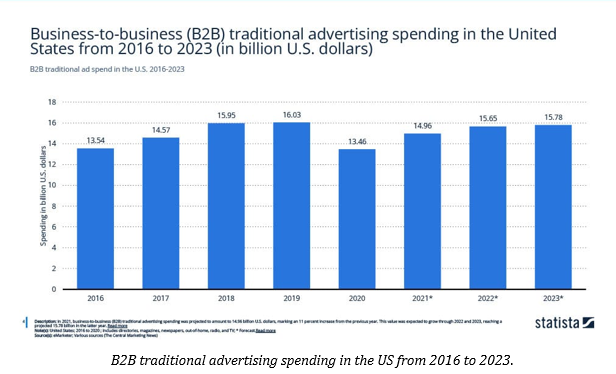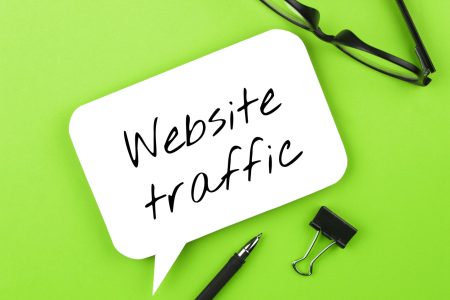Experts Tips on How to Attain B2B SEO Success in 2024

The modern boom in technology has created the need for more B2B businesses, increasing competition in the already saturated market. For instance, B2B businesses in the US exceed 3 million. So, considering the current market condition, business owners must embrace ways to help them gain visibility. One way to achieve that is by incorporating practical SEO strategies into your B2B business.

Search Engine Optimization (SEO) is crucial for B2B businesses as it improves brand visibility and drives traffic to your website, which will help you rank above your competitors in search engine results pages (SERPs). Best SEO practices for B2B businesses are cost-effective and offer an impressive ROI (ROI).
This blog will cover everything you need to know about the importance of SEO for your B2B business and how to implement the right strategies for long-term success.
The B2B SEO Landscape: Key Information to Know
The Key Concept of SEO in the B2B
Business-to-business SEO involves the incorporation of search engine optimization strategies in B2B digital marketing. It entails designing a website plus its content to command the attention of your intended clients. A well-optimized website will generate quality leads and will boost traffic to your site. Rather than intending to grow sales, as with B2C businesses, B2B companies strive for qualified leads.
How B2B Uses Long-Tail Keywords

B2B marketers apply several strategies to keep businesses ahead of their competitors. For example, they focus on tailoring business-to-business keywords to optimize content for search queries with low keyword difficulty and medium to high average search volume. Using long-tail keywords is among the best SEO best practices, especially for local service providers, SaaS companies, and startups. It connects marketers with prospective audiences, concurrently reducing competition on SERPs.
How is SEO Important in the Modern Digital Landscape?
SEO plays a crucial role in B2B business campaigns by improving brands’ online visibility, making it easier for prospective clients to find businesses offering the products and services they are looking for. Besides, SEO aims to optimize a website for specific phrases and keywords that align with prospective customers’ search intent, which helps augment the amount of relevant traffic on-site. B2B SEO also helps with lead generation by ensuring your website ranks higher in SERPs.
Keyword Research and Strategy
 How to Conduct Effective Keyword Research for B2B Audiences/Lead Generation
How to Conduct Effective Keyword Research for B2B Audiences/Lead Generation
Keywords are the root of effective SEO strategies. Specifically targeted keywords for a B2B business’s website ultimately drives the right traffic onto a website. That’s why conducting effective keyword research for B2B audiences is essential to SEO growth.
Below are general subjects and steps to consider before jumping into keyword research for your B2B business:
- Analyze your niche: How does your prospective audience view your brand?
- Create a list of seed keywords (what words are your target audience likely to use when searching your products and services)
- Identify your competitor’s keywords and strategy
- Write relevant keywords that align with your goal
- Classify your keywords based on search intent
- Come up with a list of the most important keywords
- Incorporate relevant keywords per step of your customer journey
How is Using Long-tail Keywords Important to Your B2B SEO?
Long-tail keywords are phrases with at least three words or more. These keywords are important to B2B SEO, as they are specific. This makes it easier to rank in SERPs, increasing lead generation.
Long-tail keywords are ideal for searching results with a lower volume but have more conversions. Because of the descriptive nature of the long-tail keywords, the searchers are mostly people who intend to purchase your goods or services. So, long-tail keywords are a way of reducing the bounce rate. In short, businesses integrate these keywords into B2B SEO to boost the conversion rate.
How to Build a Strong Keyword Strategy for B2B Business Success
Building a strong keyword strategy for your B2B business involves aligning your online content with your prospective audience’s questions and needs. This will improve site accessibility and reliability, leading to more sales. Here is how to go about it;
- Create a buyer persona
- Perform a technical SEO audit (identifying issues in your website that need to be addressed )
- Conduct keyword research
- Come up with topic pillars and clusters
- Create strong landing pages
- Onsite and offsite SEO B2B techniques
- Identify your sales funnel complexities
- Optimize your business growth
Onsite vs. Offsite SEO Optimizations

Building a successful website for your business calls for onsite and offsite SEO optimizations. But what’s the difference between the two? Onsite SEO is every activity you perform on your website, such as adding images, meta descriptions, internal links, regular updates, and so on. Offsite SEO is activities performed outside your site, such as link-building. Both onsite and offsite SEO aims to enhance businesses’ visibility.
Important Aspects for Optimizing Search Engine Rankings Both On and Off a Website
- Off-Page: Off-Page practices you can use to increase traffic on your site include:
- Link Building/Backlinks: You can get another reliable site to link to your website. Having more backlinks improves a site’s authority, leading to a higher ranking. Make sure your backlinks are from authoritative domains, as this can impact your authority score and consequent rankings.
- Content Marketing: Creating quality content is a great off-page SEO strategy. It will improve your brand visibility and help you earn backlinks.
- Local SEO: This involves using keywords or phrases that match your locality as well as optimizing your Google my Business profile and creating locally relevant content.
- Review: Reviews are key ranking factors in Google. Always respond to your customers’ reviews, either good or bad.
- On-Page SEO: On-Page SEO practices include:
-
- Keywords
- Title Tags
- Meta description
- Internal linking
- Headers
- Urls
- User Engagement
- Loading Speed
- Schema Markup
What Does Local SEO for B2B Business Involve?
 Local SEO for B2B business involves optimizing a website to make it more visible to your local audience. Local SEO targets specific areas, so the keyword must include geolocation. B2B local SEO plays a key role in setting businesses apart from their competitors. Besides, it improves visibility since people searching for products and services within your locality will easily find your website. Easy visibility will establish you as an authority in your industry. You can optimize your website for local SEO by leveraging schema, optimizing your Google Business Profile, managing your local listing, and performing case studies for local SEO.
Local SEO for B2B business involves optimizing a website to make it more visible to your local audience. Local SEO targets specific areas, so the keyword must include geolocation. B2B local SEO plays a key role in setting businesses apart from their competitors. Besides, it improves visibility since people searching for products and services within your locality will easily find your website. Easy visibility will establish you as an authority in your industry. You can optimize your website for local SEO by leveraging schema, optimizing your Google Business Profile, managing your local listing, and performing case studies for local SEO.
How to Measure SEO Success in the B2B World
SEO B2B KPIs
For B2B SEO, you must select the right KPIs (Key Performance Indicators) to determine the effectiveness of your campaign. The most critical B2B SEO KPIs include SEO Return On Investment, bounce rate, lead conversion rate, percentage change in organic traffic, and more.
Tools and Analytics for Monitoring B2B SEO Success
Monitoring your B2B SEO success is critical as it will help you optimize your strategy and drive the right traffic to your site. Some B2B SEO tools and analytics worth using include SEMrush, Google Analytics, Ahrefs, custom dashboards, HubSpot, and more.
Tracking SEO Trends and Algorithm Changes for B2B
Search engines frequently improve their algorithms to enhance user-experience. Search engines aim to offer the best content for their users. The frequent updates influence website visibility, traffic, and even ranking. It is very important that you implement and continuously improve SEO strategies for long-term success. You can achieve that by doing the following:
- Stay connected with industry professionals
- Attend conferences and webinars
- Use SEO tools and analytics
- Invest in continuous learning and educational resources
- Follow search engine and social media updates
Explore How Ready Artwork is a Solution for B2B Clients:
Ready Artwork has vast experience in boosting SEO campaigns for businesses like yours. You can see how our skills and experience in SEO played a significant role in the success of Meefog.
Interested in building your B2B audience? Start here.

 How to Conduct Effective Keyword Research for B2B Audiences/Lead Generation
How to Conduct Effective Keyword Research for B2B Audiences/Lead Generation
